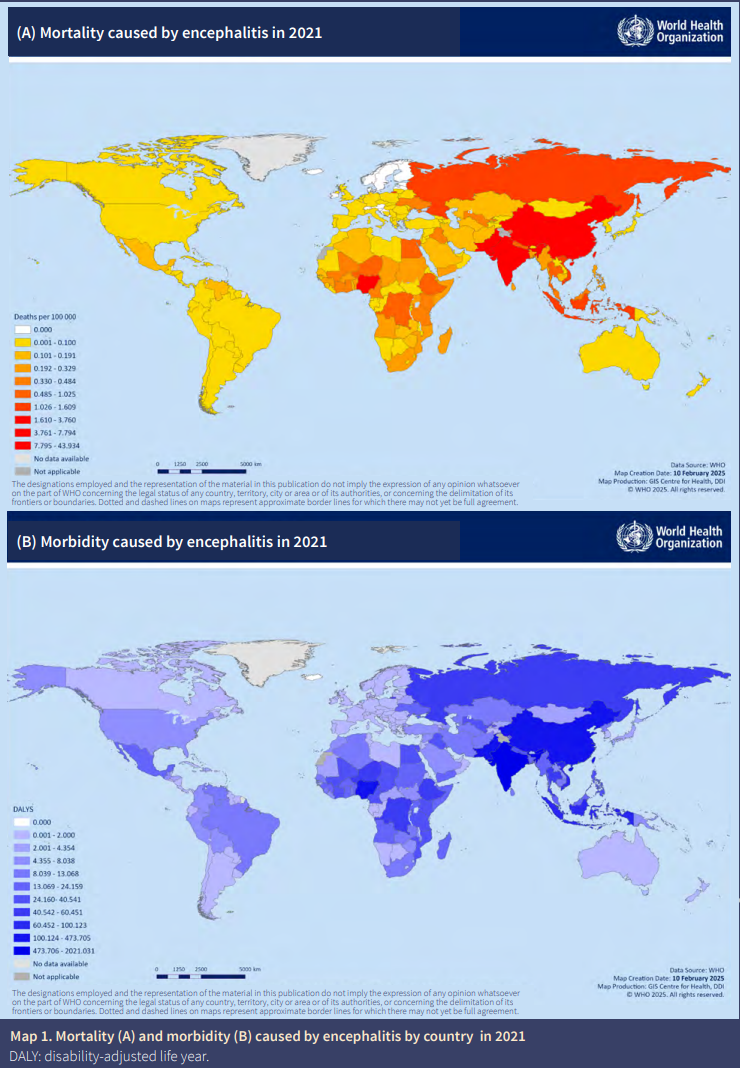Excerpt: “Encephalitis is an inflammation of the brain; a serious, life-threatening neurological condition affecting people across all age groups, that has high mortality and often leads to significant long-term sequelae. Globally in 2021, encephalitis was the fourth leading cause of neurological health loss (i.e. disability-adjusted life years [DALYs]) in children aged under 5 years and the 13th overall across all age groups (1, 2). In 2021, over 80 000 people died from encephalitis and up to 50% of people with encephalitis suffered long-term after-effects of the condition, losing independence, income and quality of life. … Encephalitis has many causes, including infectious and autoimmune processes; however, the etiological agent often remains unidentified. Infectious encephalitis is an increasing public health concern globally, and mosquito-transmitted arboviruses (i.e. arthropod-borne viruses) addressed in the World Health Organization’s (WHO’s) upcoming preparedness and resilience for emerging threats (PRET) module will include those that cause encephalitis (10). A few types of infectious encephalitis can be prevented by vaccination or treated with antimicrobials; however, in most cases, no specific treatment is available, making encephalitis an urgent public health imperative and underscoring the importance of prevention.”
39,686 Entries
33 Added in Past 24 Hours

